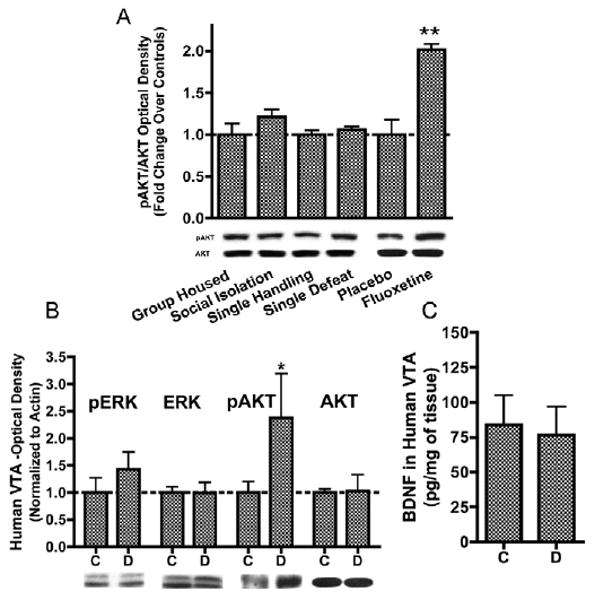Figure 2.

Antidepressant treatments produce increases in AKT activation in the ventral tegmental area (VTA). (A) Whereas prolonged social isolation (10 weeks, t12 = 1.37, p > .1) ora single episode of defeat (t12 = .94, p> .1) did not alter levels of phospho-AKT in the VTA, chronic fluoxetine administration significantly increased phospho-AKT levels (t7 = 3.77,p < .05, n = 4). (B) Postmortem VTA samples from depressed humans treated chronically with antidepressants (Supplement 2) also displayed a significant increase in phospho-AKT levels (t15 = 2.16, p < .05, n = 6-12/group) without altering ERK activation. (C) Results of a BDNF immunoassay experiment demonstrating no change in levels of total BDNF protein in human depressed VTA (t16 = .22, p > .5). Data are shown as mean + SEM, with * and ** indicating significant (p < .05 or p < .01. respectively) comparisons from respective control VTAs. BDNF, brain-derived neurotrophic factor; C, controls; D, depressed; ERK, extracellular-signal regulated kinase.
